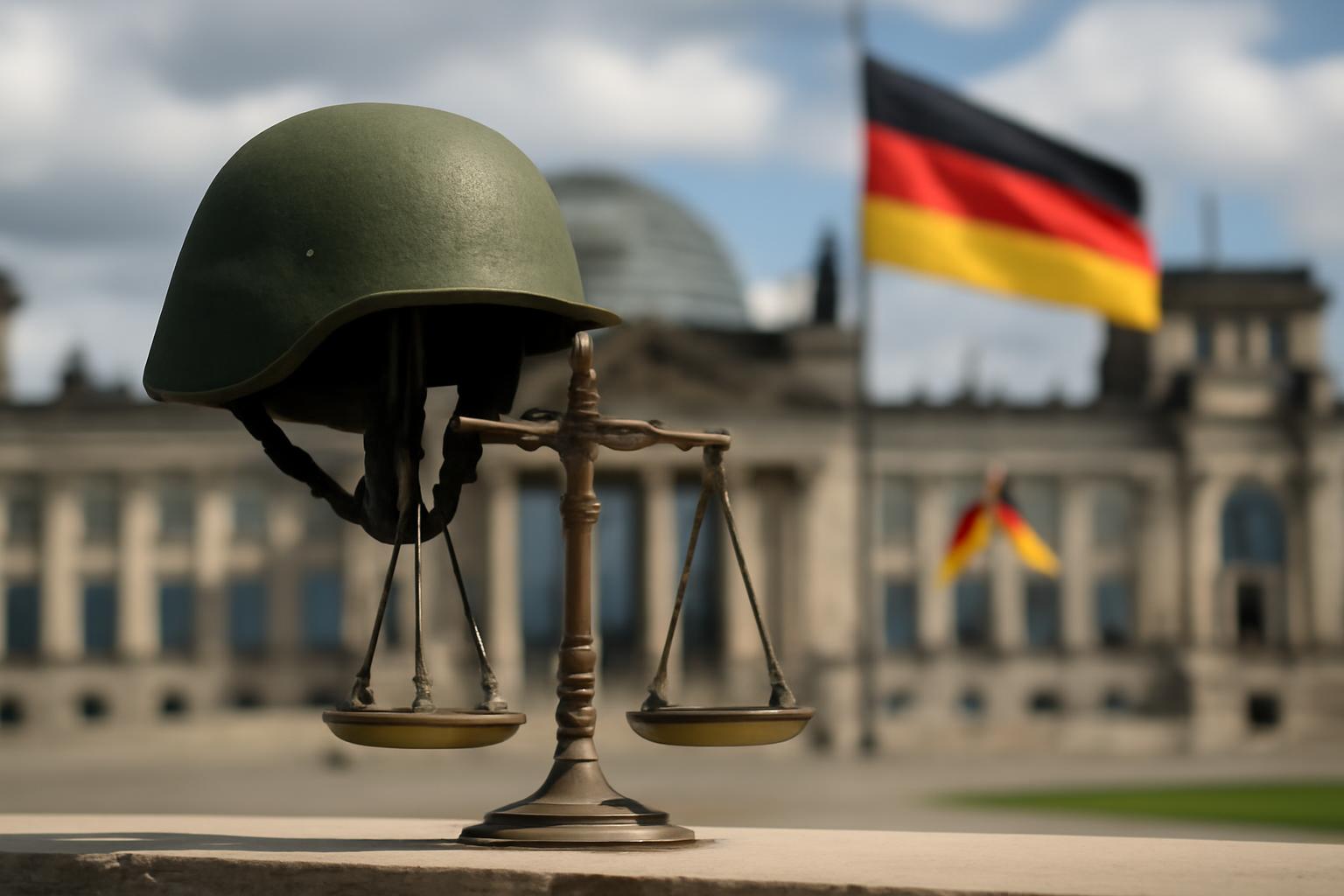A new draft law in Germany would establish a new form of Wehrdienst that remains voluntary for now but offers more attractive terms to lure volunteers, with a fallback to mandatory recruitment if volunteers fall short. The government frames this as a giant step toward changing the social mindset, especially among the young, and toward a Bundeswehr that can meet NATO objectives in light of Russia’s aggression. The chancellor trusts that initial volunteer numbers will be sufficient, with the situation monitored as it evolves. Proponents argue that a stronger, larger army is needed to deter war, even as debates are expected to spill into families, workplaces, schools, and universities. Some voices, including the historian Sönke Neitzel, advocate immediate reintroduction of conscription, a stance at odds with the cabinet’s measured approach.
What is unsaid in such declarations is the deeper logic at work: the belief that a liberal society can be steadied and guided by the state’s design of its citizens’ duties. To fashion a social order around the idea that security can be secured by coercive or quasi-coercive instruments is to mistake means for ends. The temptation to blend voluntarism with a trapdoor—volunteers now, conscription later if need be—reveals a planning instinct that distrusts the dispersed knowledge of individuals and families. It treats patriotic sentiment not as a spontaneous outgrowth of liberty but as something to be engineered by incentives, compulsion, and the rhetoric of national destiny. And in the process, it tints the very idea of citizenship with the color of compulsory obligation, eroding the delicate boundary between voluntary association and state mandate.
A free society must cultivate defense through the symmetry of liberty and responsibility, not through the apparatus of compulsion that reorganizes daily life—from classrooms to kitchen tables—around the needs of a militarized polity. The defense of freedom today requires the opposite of coercive clarity: it requires the patient building of voluntary commitment through legitimate pay, fair opportunity, meaningful work, and credible assurances that the state will not instrumentalize the citizen for purposes beyond the protection of common liberties. An overdetermined plan to shape the will of the young by embedding military service into the social fabric risks turning patriotism into a bureaucratic duty rather than a shared conviction, and it invites the cynicism that arises whenever power signals security by fiat rather than by the consent of free individuals.
There is no contradiction between deterring aggression and preserving liberty; the danger lies in conflating security with state power exercised over the most intimate spheres of life. A robust defense can grow from a well-informed, highly capable professional force, coupled with strong alliances and the rule of law, without recasting civil society as a recruiting ground or a social discipline project. If deterrence rests on the credibility of the state’s respect for individual liberty, then the wiser course is to strengthen institutions that encourage voluntary service, reward excellence, and honor civilian freedom—without defaulting to a fallback that proclaims, silently, that coercion is a legitimate instrument of national survival.
In the end, the question is not whether a nation should defend itself, but whether it will defend itself in a way that preserves the conditions of a free society. The impulse to secure the future by bending the present to a draft’s inevitability is a reminder that liberty is fragile, not because it cannot be defended, but because it can be eroded by a mood that equates security with compulsion. If a people wish to remain free while secure, they must trust the spontaneous order of civil society and the disciplined energies of voluntary citizens more than the command-and-control instincts of the state. The right answer, always, is to preserve liberty while securing peace—not to gamble with conscription as a hinge of national identity.
